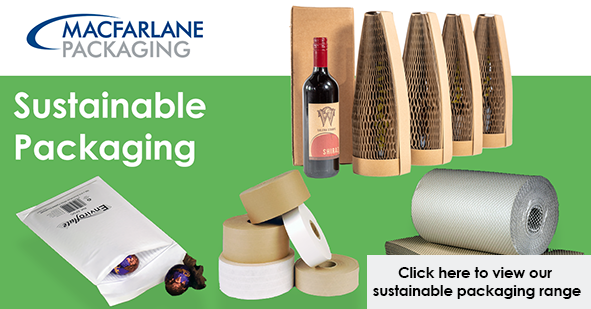The difference between compostable, home-compostable and industrial-compostable packaging
Nowadays, we often hear that something is “compostable”. As the environment becomes a priority for a growing number of customers, companies often use this term to position their products as eco-friendly.
But what does “compostable” really mean and what should we pay attention to when choosing this type of product?
Here is what you need to know.
Compostable products are made of natural materials (such as starch) and decompose completely without producing toxic residues in the process. To be classified as compostable, they must meet specific requirements set out in The European Standard EN 13432.
We distinguish between “home composting” and “industrial composting”, depending on the setting and conditions required for products to decompose.
Home composting
Home compostable products are made of components and materials that fully decompose into the soil. This includes any printing ink and adhesives when it comes to goods such as packaging.
Organic Gardens suggests that about 40 percent of the average dustbin contents can be composted at home, helping reduce the amount of waste in landfills.
Composting in the garden is a great, inexpensive way to reuse resources, improve the soil and protect the environment. The RecycleNow website covers the best ways to set up a compost bin for optimum results. Patience is required as usually the compost is ready for use after about 6 to 9 months.
Note: Products and packaging are not suitable for home composting unless they have been certified as Home Compostable, therefore, always check the product label to ensure you dispose of them correctly.
Industrial composting
Industrial composting is a controlled process that converts organic waste into stable, sanitised products that can be used in agriculture. It occurs under certain, managed conditions (in the presence of heat, humidity and oxygen) in industrial composting plants.
Many compostable packaging available in the UK only decomposes in industrial composting plants and is not suitable for home composting. Not all are currently sent to these facilities though.
This is because although industrially compostable plastic packaging appears to be an attractive option, the infrastructure for general waste management is not yet fit for purpose.
If we as customers do not know how to properly dispose of compostable packaging, it can do more harm than good. Not all products that claim to be “compostable” will be accepted by the local councils. Compostable and biodegradable plastics are also not currently recyclable and can contaminate the recycling process if placed in a standard recycling bin.
Conclusions
There is some confusion around compostable products and ways to dispose of them. Not all such products can be composted at home. For example, most of the compostable packaging needs to be sent to an industrial composting plant for proper degradation.
The UK currently lacks properly configurated facilities to manage all the industrial composting required, and if we simply put compostable products in the normal waste bin, they will end up in the landfill and degrade like any other organic matter – emitting methane.
However, as technology advances, we will move forward towards solutions and processes that help us better protect the environment. For example, work is underway to develop compostable solutions that can also be recycled.
There is also no doubt that compostable products and packaging are much more environmentally friendly than their standard counterparts, and as work progresses, processes and equipment will be available to better manage them.
Retailers and manufacturers can help a lot by educating customers and providing them with relevant information on proper product and packaging disposal. This knowledge is crucial for protecting the environment and facilitating the compositing and recycling processes.
At Macfarlane Packaging, we offer a range of environmentally-friendly, sustainable packaging solutions to help you meet your corporate responsibility and environmental goals in 2021 and beyond. Contact us today to discuss your requirements.

